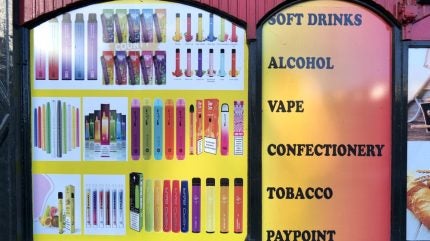
A coordinated UK police crackdown has unveiled a widespread money laundering network built around cash-only retail outlets.
According to recent reporting by the BBC, dozens of mini-marts, takeaways, barbershops and vape shops have been linked to organised criminal networks.

Discover B2B Marketing That Performs
Combine business intelligence and editorial excellence to reach engaged professionals across 36 leading media platforms.
The revelations come as part of a large-scale enforcement operation, highlighting major risks for legitimate retailers and the vulnerability of certain high-street business models.
How cash-intensive shops mask illicit money flow
Law enforcement agencies, under the umbrella of National Crime Agency (NCA), targeted hundreds of “cash-intensive” businesses across England and Wales.
Many of these shops — including mini-marts, takeaways, barbers and vape retailers — operate on a cash-only basis or handle substantial cash volumes.
According to investigators, that financial structure makes them attractive for laundering “dirty money”: criminals can mix illicit funds with legitimate cash turnover and conceal the source of proceeds.

US Tariffs are shifting - will you react or anticipate?
Don’t let policy changes catch you off guard. Stay proactive with real-time data and expert analysis.
By GlobalDataA dedicated undercover investigation for BBC revealed that some of these businesses are controlled via “ghost directors” — individuals who appear on company registration documents but do little or no actual running of the business.
That arrangement helps obscure the real operators, and complicates efforts by authorities to trace ownership and financial flows.
Scale of the crackdown and financial impacts
The latest round of raids — part of a national operation sometimes referred to as Operation Machinize — involved thousands of premises. In one wave that concluded in October, officers visited 2,734 establishments, making hundreds of arrests and seizing large sums in suspected illicit proceeds.
Official figures from local forces illustrate the breadth of criminal activity uncovered. For instance: in a recent crackdown across West Yorkshire police reportedly seized £2.7m in suspected criminal assets, freezing a further £4m in property and bank accounts linked to the operations.
Loot included luxury goods, cash, vehicles, and large quantities of tobacco and vape products.
Authorities warn the networks are far from isolated — the NCA estimates that as much as £12 billion in criminal cash enters the UK’s economy annually, with launderers often using exactly those kinds of cash-heavy businesses now under scrutiny.
Implications for the retail sector and compliance risk
For legitimate retailers operating in similar sectors — convenience stores, takeaways, vape or tobacco retailers, barber shops — the revelations heighten the compliance risk.
Regulators and law-enforcement agencies are increasingly vigilant: high-street businesses are being viewed not only as potential marketplaces but as possible conduits for laundering illegal funds.
Retailers may need to reassess their cash-handling procedures, business registration structures, and transparency around ownership and financial flows. Those failing to meet regulatory expectations risk enforcement action, reputational damage, or closure.
The crackdown also emphasises the importance of greater due diligence, not just by regulators but by landlords, investors and stakeholders in the retail property and business supply chain.
Cash-only or cash-intensive shops — once a hallmark of convenience retail — now carry a heightened level of scrutiny.





